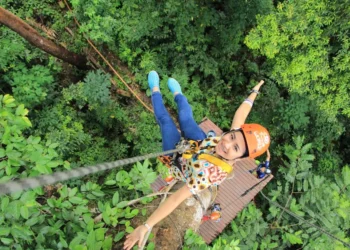Malaysia Opens Doors to Sri Lankan Tourists with Visa-Free Entry
In a landmark move to strengthen tourism and bilateral relations, Malaysia has announced visa-free entry for Sri Lankan visitors. This strategic decision aligns with Malaysia’s Visit Year 2026 sustainable tourism goals, aiming to boost arrivals and foster cultural exchange between the two nations.
Why This Move Matters
The visa exemption is expected to:
- Increase tourist arrivals from Sri Lanka, tapping into a growing market of leisure and business travelers.
- Enhance economic cooperation by simplifying travel for trade, investment, and educational exchanges.
- Support sustainable tourism by promoting longer stays and diversified itineraries beyond traditional hotspots.
Impact on Malaysia’s Tourism Sector
Malaysia, already a favorite among Southeast Asian travelers, is doubling down on its appeal with this policy. Analysts predict:
- A 15-20% surge in Sri Lankan visitors by 2026.
- Greater revenue for Malaysia’s hospitality and retail sectors, particularly in Kuala Lumpur, Penang, and Langkawi.
- Stronger cultural ties through increased people-to-people interactions.
Sustainable Goals in Focus
The initiative dovetails with Malaysia’s commitment to responsible tourism. By easing travel restrictions, the country aims to:
- Distribute tourist footfall to lesser-known destinations, reducing overcrowding.
- Encourage eco-tourism and community-based tourism projects.
- Align with global sustainability benchmarks ahead of Visit Year 2026.
What Travelers Should Know
While details are still emerging, here’s what Sri Lankan tourists can expect:
- No visa fees for short-term stays (expected 30-90 days).
- Streamlined immigration processes at major entry points like KLIA.
- Potential partnerships with airlines for discounted travel packages.
This policy marks a win-win for both nations, blending tourism growth with long-term diplomatic and economic benefits. As Malaysia prepares to welcome more Sri Lankan visitors, the world watches how this model could inspire similar regional collaborations.







